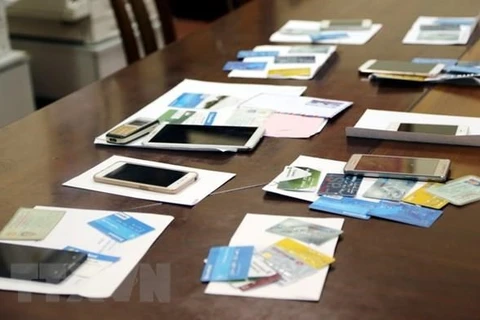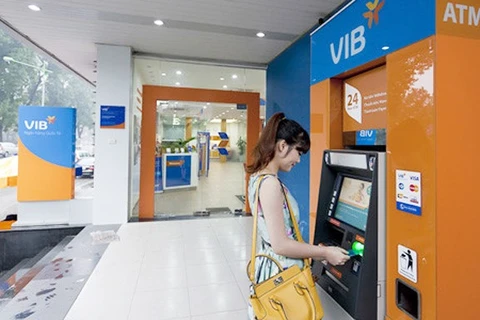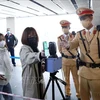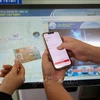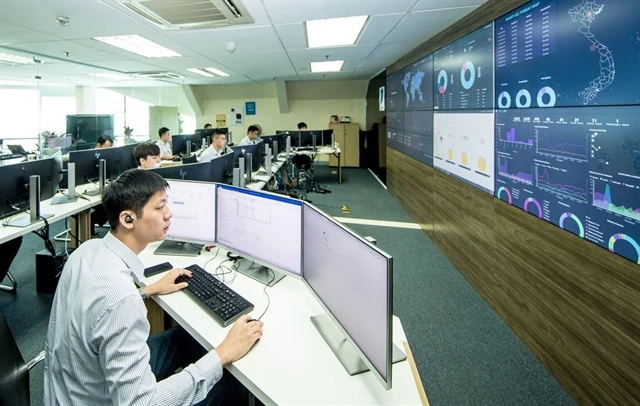
Hanoi (VNS/VNA) - The recent increase in personal data theft and fake websites has caused property damage to individuals, businesses and even websites managed by state agencies and organisations.
Personal data, including biometric and financial information, relationship and health status and personal history, has been leaked and posted publicly, and it has become a source of information for automated collection programmes used by fake websites or cybercrime organisations.
This issue shows the urgent need to come up with feasible solutions to protect data in cyberspace.
Data and websites of businesses, agencies and organisations in Ho Chi Minh City have become a major target of cyberattacks in recent years, said Lam Dinh Thang, Director of the municipal Department of Information and Communications.
One main reason is that the city has been accelerating digital transformation and building digital infrastructure for the network environment.
During this process, cybercriminals can take advantage of security loopholes to attack, damaging individuals and organisations.
The “Dai doan ket” (Great National Unity) newspaper quoted the director as saying that without timely data protection measures, cyberattacks would continue to rise in both quantity and severity, causing serious consequences, not only economic damage but also potentially affecting national security.
It's not just in HCM City, either. The country currently has nearly 80 million internet users, accounting for more than two-thirds of the population, ranking 7th in the world. This makes Vietnamese people or groups a target for international cybercrimes, too.
A recent report from Viettel on the cybersecurity situation in the first half of this year stated that the amount of stolen personal information recorded nationwide grew by 50% compared to the same period last year.
The number of websites impersonating organisations and businesses has risen fourfold year-on-year, causing an increase in the number of scams and financial fraud in cyberspace.
In the face of increasing data attacks on individuals, organisations, and domestic enterprises, the Ministry of Public Security and the authorities of HCM City and other localities have strengthened many cybersecurity measures. However, personal data leaks and theft, as well as the existence of many fake websites that appear to belong to state agencies and other legitimate organisations, are still widespread.
Spam calls are an ongoing problem, affecting people, businesses and the normal operations of agencies and organisations.
Notably, data leaks and ransomware attacks, in which data is encrypted until a ransom is paid, have become serious threats to national security.
In the past year alone, the Ministry of Public Security has verified 16 information cases, including state secrets and internal data, being leaked and sold in cyberspace.
Even more alarming, the ministry warned that the trading of personal data is being carried out systematically. The problem is increasing in large cities such as HCM City and Hanoi, which are in the process of accelerating their digital transformation.
Cybercrime is currently a major issue not only in Vietnam, but also around the world.
Therefore, the Ministry of Public Security and each locality must consider this an urgent problem that requires solutions to minimise property and economic damage to people, businesses, agencies, and organisations.
Furthermore, each individual, organisation and enterprise needs to proactively review backup systems, ensuring that backup data is physically separated from main network systems.
Backup data sources must also be recoverable when the main system is at risk of serious failure, thereby rendering the data sources immune to cyberattacks.
Mobile internet speed increasing
According to statistics from the Vietnam Internet Network Information Centre (VNNIC), mobile internet speed in Vietnam rose 1.4 times last month, and upload speed increased 1.2 times compared to March.
At the same time, fixed internet speed, both uplink and downlink, is currently stable.
Regarding the quality of internet service providers in Vietnam, i-Speed statistics show that Viettel now ranks first in terms of mobile internet speed, followed by Vinaphone (VNPT), MobiFone and Vietnamobile.
In the fixed broadband segment, Viettel is also the provider with the best fixed internet download speed in Vietnam last month (128.97 Mbps).
Ranking second in fixed internet download speed is FPT Telecom (100.59 Mbps), with VNPT in third place (95.82 Mbps).
A VNNIC representative said that the Ministry of Information and Communications (MIC) has announced data on internet service speeds for network operators in Vietnam since the beginning of April this year to enhance publicity, transparency and public interest in services.
The move contributes to improving the efficiency of internet management based on actual data, promoting development and improving the quality of internet access services in Vietnam.
To continue to have more and more accurate data on internet speed in Vietnam, the Vietnam Telecommunications Authority recommends that people, organisations and businesses regularly use the i-Speed application to measure internet access speed.
This is a measurement system built and developed by the VNNIC since 2020, used to measure internet access speed in Vietnam through user experience objectively and accurately.
Using the i-Speed measurement application is free and does not incur data fees./.
